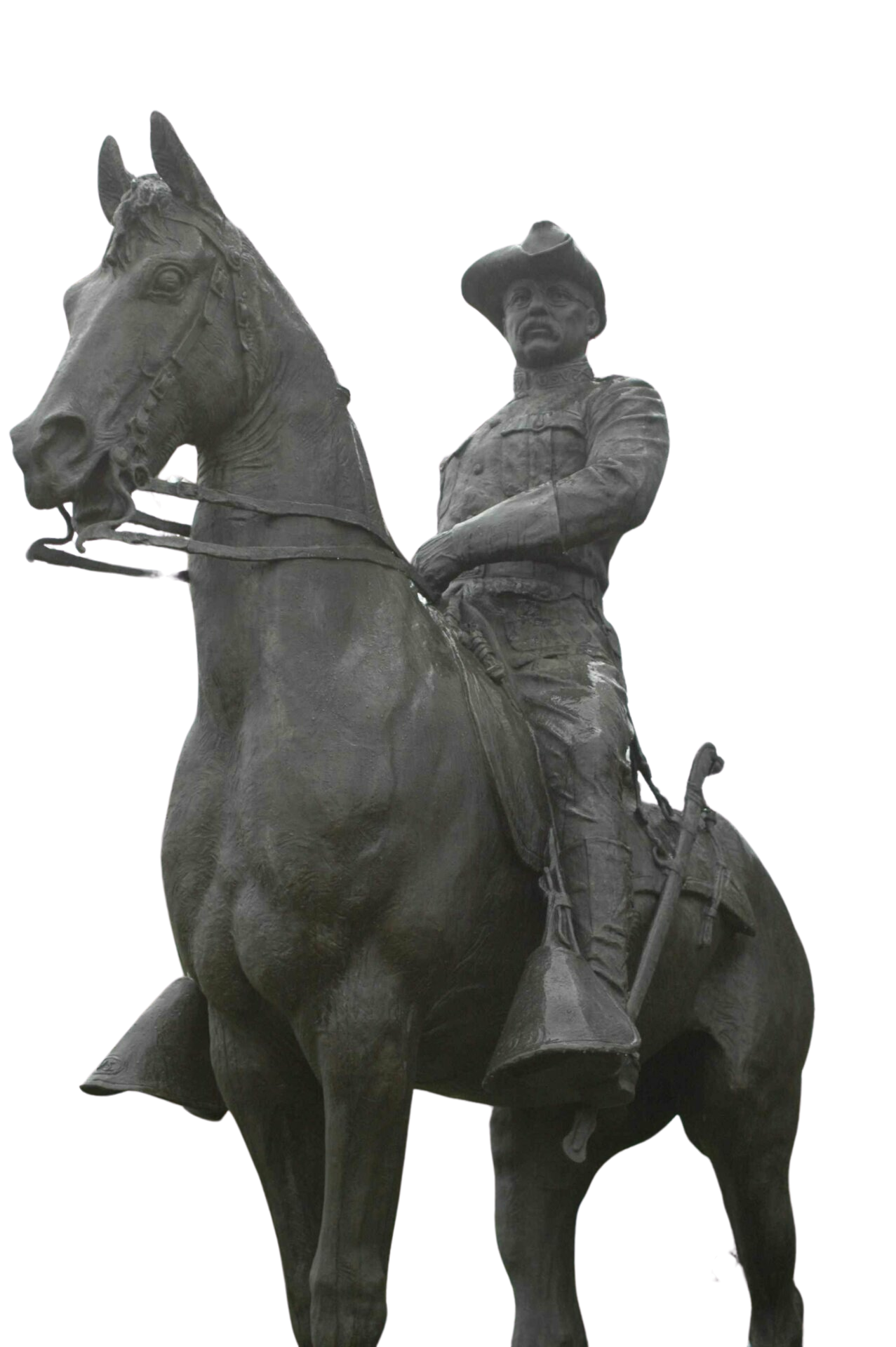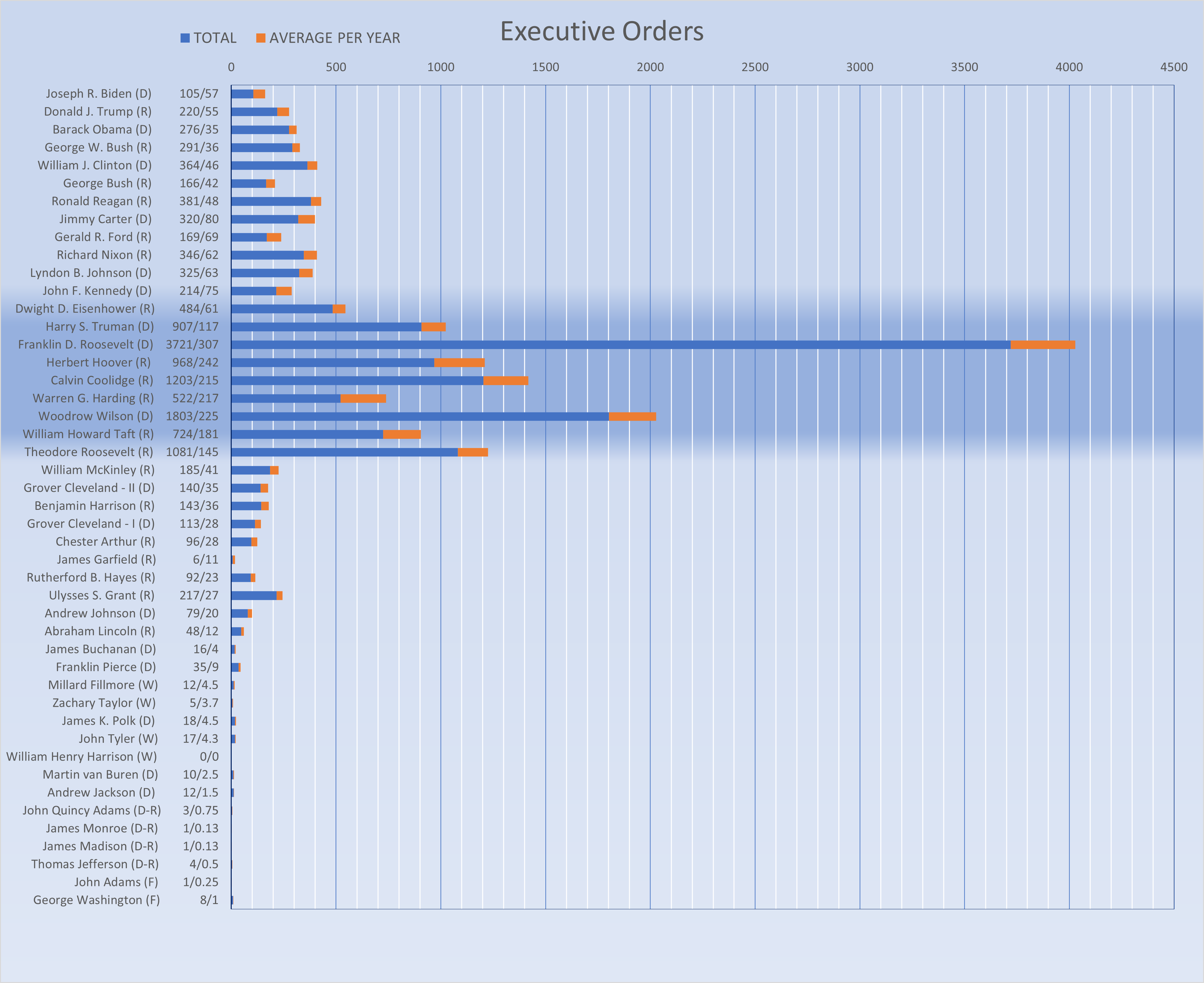
For the most part, Executive Orders have been an usurpation of legislative powers that belong solely to Congress. The Framers of the Constitution intended that the House of Representatives would possess the most powers in the newly proposed government. They gave the House the "purse strings" to control spending and taxation. To prevent tyranny, they kept the elections, or turnover, of the House of Representatives short in duration, every two years. Presidents, on the other hand, had far fewer powers in the Constitution. Article II of the Constitution which outlines the president's powers is only 1025 words long. Article I which outlines the Congress' powers is twice as long at more than 2200 words. This should tell you something.
All proposed laws (bills) originate in Congress and become law after the President signs the bill; however, even if the President chooses to veto the bill, Congress can still override the bill to become law, with 2/3 votes from both chambers. If the President chooses not to sign the bill, it still becomes law after 10 days (excluding Sundays). The closest thing to "legislative" powers a President has, according to the Constitution, is to report to Congress on the "State of the Union" and "recommend to their Consideration such Measures as he shall judge necessary and expedient" (Article II. Section 3 of the Constitution).
The Framers drafted The Constitution with one principle in mind: if the Constitution did NOT give the federal government any particular power, the States and the people would retain it. The Bill of Rights was an afterthought during the ratification period. Many citizens feared the newly created national government would become too powerful. The opponents to the Constitution and its proposed national government were labeled "Anti-Federalists." They would be aghast to discover how much power the national government has usurped through its gross misinterpretation of the Constitution.  Included in that gross misinterpretation of the Constitution is the use and abuse of Executive Orders. The hinge point when Presidents began abusing their office and usurping powers that belonged to Congress was Theodore (Teddy) Roosevelt. He had this to say in his autobiography.
Included in that gross misinterpretation of the Constitution is the use and abuse of Executive Orders. The hinge point when Presidents began abusing their office and usurping powers that belonged to Congress was Theodore (Teddy) Roosevelt. He had this to say in his autobiography.
- I declined to adopt the view that what was imperatively necessary for the Nation could not be done by the President unless he could find some specific authorization to do it. My belief was that it was not only his right but his duty to do anything that the needs of the Nation demanded unless such action was forbidden by the Constitution or by the laws. Under this interpretation of executive power I did and caused to be done many things not previously done by the President and the heads of the departments. I did not usurp power, but I did greatly broaden the use of executive power.[i]
Roosevelt set a dangerous precedent. He broadly expanded the powers of government, which in the wrong hands leads to tyranny, the same concern the Framers had when they put the reins of government in the hands of the people?s representatives in Congress. Roosevelt's actions flew in the face of the ?Founders? doctrine of enumerated powers, which said he could do NOTHING except that which the Constitution authorized.?[ii]
The minimal use of Executive Orders by the early Presidents clearly demonstrates they understood they had restraints. Thomas Jefferson called these restraints, "The Chains of the Constitution."

Data from The American Presidency Project, https://www.presidency.ucsb.edu/statistics/data/executive-orders#eotable
Teddy Roosevelt and subsequent presidents greatly expanded the powers of the office.
The intended restraint of the Constitution on the size and scope of our national government was henceforth and forever lost. Electing a president who understands their constitutional role is limited in scope would be a major step forward in bringing sanity back to Washington D.C.
[i] https://www.loc.gov/resource/gdcmassbookdig.theodoreroosevel05roos/?st=pdf&pdfPage=413
[ii] W. Cleon Skousen, THE MAKING OF AMERICA, The Substance and Meaning of the Constitution (The National Center for Constitutional Studies, 2nd edition, rev 1986) p. 253